Divided opinion: English Baccalaureate
- Published
Schools in England are now being measured according to how many pupils achieve grades A*-C in five core subjects - maths, English, two science qualifications, a foreign language and either history or geography.
This is in addition to the long-standing benchmark of the proportion of pupils gaining grades A*-C passes in maths and English GCSE and three other unspecified subjects, which could be vocational or GCSE courses.
The new measure, which is being published for pupils who took exams before it was announced, has divided opinion.
Liz Clarke, acting head, Shenfield High School, Essex: New system is a 'backward step'
Ms Clarke is concerned the government is putting pressure on schools to focus on more traditional academic subjects and says ranking schools on these subjects is "not the only route".
"A narrow academic course is not the right thing for all of our students. This is just narrowing down too much - for example, history and geography being the only humanities, where's RE?"
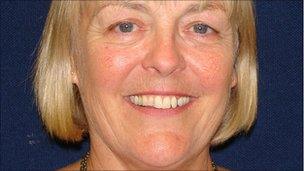
Liz Clarke says the academic route is not the best path for all pupils
Ms Clarke says the new method for ranking schools creates a moral dilemma for school management.
"How can I, as the head teacher, and my colleagues try to promote the curriculum which would mean that the school does better in league tables if we believe that is at the cost of individual students?
"We've got a duty to provide what's best for individual students and not be directed and guided by the steer government tries to put on it."
Ms Clarke says the government was wrong to change the ranking system after the exams to which it relates.
"I'm angry because it's retrospective, quite apart from the fact that there needs to be much more discussion about whether it's an appropriate course for the majority of students."
Carolyn Roberts, head teacher, Durham Johnston School, Durham: New system benefits state pupils
Mrs Roberts finds herself agreeing with Education Secretary Michael Gove's new method for measuring school performance. She believes league tables have encouraged schools to discourage pupils from taking "harder" GCSEs.
"League tables have offered a perverse incentive to schools - schools have been tempted to provide courses that will confer league table success on the school," says Mrs Roberts.
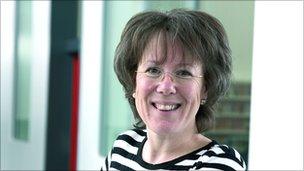
Carolyn Roberts says the new measure will force schools to offer rigorous subjects
Mrs Roberts says some pupils who join her comprehensive school in the sixth form "already have doors closed to them because of the GCSEs they have studied".
She feels strongly that state school pupils should receive the same access to traditional subjects as private school pupils who "always study a language and history and geography".
"If students in state schools are not offered those opportunities, then their competitiveness is reduced."
Mrs Roberts says opportunities should always be offered to a child, even if they are not going to get an A*.
"A pupil might enjoy geography and history but only be on target for an E - and schools should be prepared to go with that.
"Mine is a social justice position in which I find myself - slightly oddly - agreeing with Michael Gove."
But Mrs Roberts stresses the new approach should not be used as a stick with which to beat schools: "We need to get it right as a measure."
Libby Steele, head of education, Royal Society: Good news for science
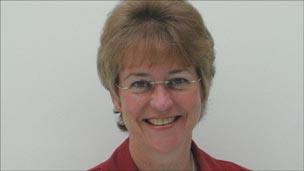
Libby Steele welcomes the emphasis put on science by the government
Mrs Steele says the government's additional benchmark is a boost for science.
"The introduction of an 'English Baccalaureate' target is a logical step to ensure that young people receive a rounded education and are in a position to make better qualified decisions about their progression through the education system.
"With science identified as playing such a pivotal role in the UK's future economic prosperity, and the competition for university places and jobs escalating, the Royal Society hopes that pupils will recognise the value of choosing to study sciences to GCSE level and beyond."
Rev Jan Ainsworth, chief education officer Church of England: Concern over the omission of RE
Rev Ainsworth says the church is concerned that Religious Education is not included in the core five academic subjects under the new rankings method.
"Not only does RE have a very distinctive history in English education but it is very popular in schools.
"Many testify to RE being the only space on the curriculum where they can explore their own beliefs and values and engage with people of faith in that exploration," says Rev Ainsworth.
"This is underlined by new research among young people from the Religious Education Council of England and Wales, which shows that RE is a valued subject that leaves a lasting impression on those who study it.
She says the Church of England is talking to the government about the omission.
Teresa Tinsley, Cilt, the National Centre for Languages: Raises the profile of languages
Ms Tinsley believes the new benchmark will encourage more pupils to keep up with language study.
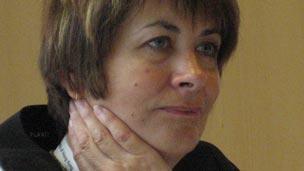
Teresa Tinsley: A much needed boost for languages
"We welcome the Baccalaureate as a way of increasing the numbers of pupils studying languages and raising the profile of languages in schools."
But she warns that some languages departments in schools will need reinvestment after languages were made optional in September 2004 for children at the age of 14.
"We are worried that there will be some challenges for schools, where language departments have been reduced over the years, in rebuilding their departments."
Ms Tinsley is also urging schools to teach languages for their own sake, not just a a means of meeting the English Baccalaureate.
"It's important we go for hearts and minds on languages - see them as a valuable subject - rather than just a means to meet targets."
Sally Russell, co-founder Netmums: More information, but more confusion for parents
Mrs Russell says, while Mr Gove's new measure gives parents more information, there is a risk that parents will be confused.
"More information being available is always good. But I think having a new measure will lead to a lot of confusion amongst parents. Does it mean that a good school is now not so good?"
Mrs Russell says the new benchmark of pupils achieving good grades in five academic subjects opens up a debate of what subjects should be taught.
"Are these core subjects right for all children?"
Kevin Stannard, Girls' Day School Trust: Mixed view
Mr Stannard says the emphasis ministers are putting on academic rigour is important.
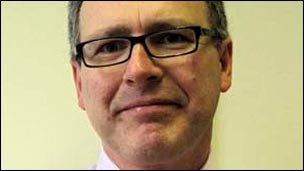
Kevin Stannard says the new benchmark has advantages and disadvantages
He says: "We greatly welcome government recognition of the importance of a broad and balanced senior school education, measured through rigorous exams in academically challenging subjects and including humanities and languages as well as in other core curriculum areas."
But Mr Stannard believes the term baccalaureate is confusing, as it is associated with sixth-form study. He also expressed concern at the speed with which the new measure was brought it.
"Decisions on which subjects to include will influence curriculum choices in future, but they have no effect on the cohort measured last year. Policy-makers need to be aware that changing exams and schools' performance measures can have undue, unintended and unfortunate implications for teaching and learning."
The trust is also concerned that ancient history is on the list of acceptable humanities subjects, but classical civilisation or religious studies are not.
Rick Muir, associate director Institute for Public Policy Research: New system disadvantages poorer pupils
The Institute for Public Policy Research fears the new system for ranking schools will divert resources away from the poorest pupils.
Mr Muir says, by focusing on five core subjects - dubbed the English Baccalaureate - the government puts the emphasis on higher-achieving pupils.
"The problem is that very few students from disadvantaged backgrounds actually take those subjects, they won't be motivated to take them.
"Ministers are now incentivising schools to focus their efforts on middle-class children who do well in these subjects."
He also says ministers are putting contradictory pressures on schools by introducing two different targets.
"Michael Gove is pushing schools in two different directions: on the one hand he is measuring success according to how many of their pupils get the English Bacc, and one the other hand he has set a floor target that 35% of all pupils in a school should get 5 A*-C GCSEs including English and maths."
Deborah Annetts, chief executive Incorporated Society of Musicians: Concern over the omission of music
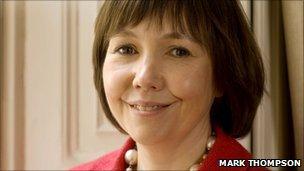
Ms Annetts is worried music will be squeezed out of the curriculum
Ms Annetts says many subjects, including music, will be overlooked as schools focus on a limited number of subjects for league table purposes.
"Not only are there challenges for music education in terms of funding and structure, but also music's place in the curriculum is under threat," she warns.
"The government must stop, look and listen before it takes a seriously wrong step, jeopardising music education for generations to come."